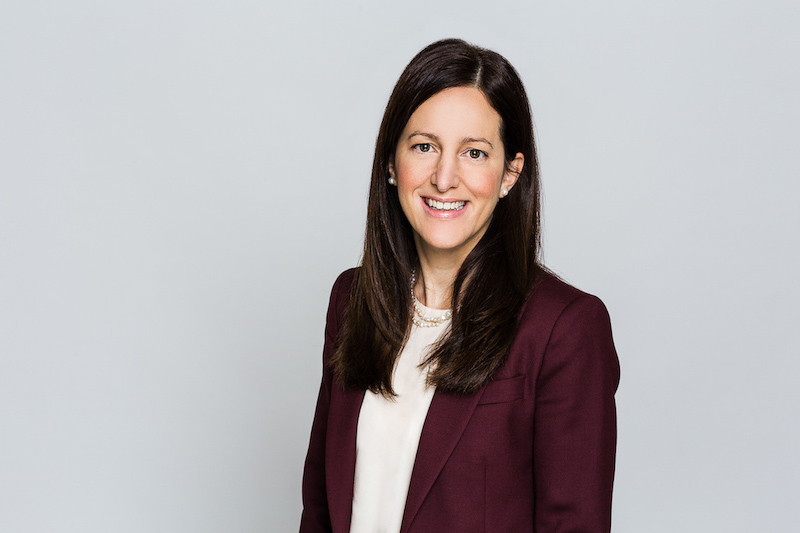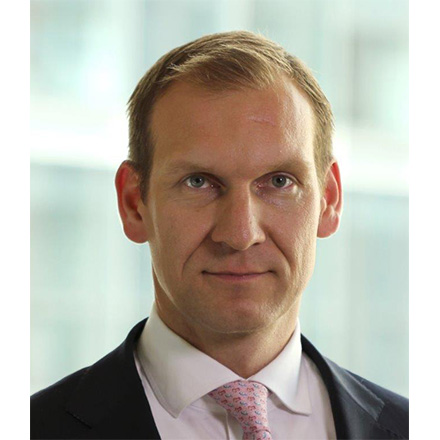Swiss M&A Dealmakers Anticipate Busy 2022
2 November 2021Four Switzerland-based dealmakers talk opportunities and optimism for the coming 12 months.

As reported in the SS&C Intralinks Deal Flow Predictor for Q4 2021, the global mergers and acquisitions (M&A) market is moving at a record-setting pace. Despite COVID-19 resurgences, inflation concerns and geopolitical tensions, no combination of headwinds — unseen or forecasted — seem to put dealmakers on edge.
Globally, deal volume is increasing. When all is said and done, the number of transactions for 2021 will have reached historic heights. While uncertainty exists and the global COVID-19 health crisis remains an ongoing challenge, M&A will be a lever to pull for firms seeking inorganic growth.
To learn more about where the Swiss M&A market is right now and what lies ahead in the coming year, we spoke with four prominent dealmakers working on the frontlines: Camille Mueller, head of M&A at Axpo Group; Daniel Raun and Beda Kaufmann, partners at Advestra; and Jan Masek, managing director – head of advisory Switzerland at BNP Paribas.
Our thanks to Camille, Daniel, Beda and Jan for sharing their fascinating and thought-provoking perspectives with Intralinks’ global community of M&A dealmakers.
Camille Mueller, Axpo Group
SS&C Intralinks: Could you provide a short overview of Axpo, the company's priorities, your role within the company and your background?
Camille Mueller: Axpo is a leading Swiss power utility and Switzerland’s largest producer of renewable energy. We cover power generation, distribution and trading, as well as some adjacent areas. We are also a leading marketer and trader of renewable energies on an international scale and have a presence in 39 markets across Europe, the U.S. and Asia. We established a new strategy last year with three core pillars to focus on. As part of this, we look to significantly grow in Renewables, in particular photovoltaic (PV) and wind, but also energy storage. We also look to grow our trading and origination business units and focus on select growth pockets in Switzerland. I am head of M&A at Axpo, responsible for mergers and acquisitions across the Axpo Group, including our Swiss and international subsidiaries. I started my career in investment banking at JPMorgan and worked in London and Hong Kong before moving back to Switzerland.

COVID-19 has brought significant disruption to all sectors, some impacted more than others. How has the pandemic impacted your business and the way that your processes have been run during the past 12 months?
From a Renewables perspective, we have been hit similarly to other sectors, with the lockdown and mobility restrictions disrupting supply chains and delaying the construction of renewable energy installations. However, due to the pandemic, we also unlocked a lot of new opportunities in the way we run our processes. Digitalization has progressed significantly in the past year, and M&A is benefitting from this substantially. For example, it’s now much easier to schedule a video conference and have many more meetings in one day, rather than using a full day of travel for fewer meetings. Moreover, M&A processes have become much more efficient, for example, the management presentations in a sell-side process can be recorded upfront, and we can save the live session for the Q&A. Frankly that was something we never tried before but is often done very successfully now. Site visits are another example where digitalization has opened new opportunities; we are conducting them sometimes with drones and a moderator. This has many benefits compared to traditional site visits, if you think of confidentiality, security limitations and health and safety requirements when visiting in person. So overall, I hope the future will bring the best of both worlds and that we will continue to take advantage of what we have learned during the past year.
As we’ve seen in the market, there’s been consolidation within the Energy market in recent years. How do you think investors’ appetite for Energy sector targets will evolve post-COVID? Furthermore, how have you seen valuations affected, and how are you expecting them to take into consideration the current spike in commodity prices?
The global economy has substantially recovered since the beginning of the pandemic and we can also see the total volume and value of M&A in the sector have increased steadily in recent years. In the current market, fixed-cost energy sources such as hydro and nuclear would likely observe a decrease in profits; on the other hand, thermal units — primarily gas — would see an increase in returns. This trend will probably normalize over time at some point. The energy transition agenda will remain a key focus for Energy firms and financial investors; I believe we are well on track to continue this trend in terms of deal volume. Interestingly, the valuations were already quite high, especially during the beginning of the year. In the Renewables sector, the values peaked quite significantly, but then the market corrected itself for Renewables. What will happen in the near- to medium-term, also looking at the current disruption in the global supply chain, is hard to predict. What I am hoping is that there will be as little disruption as possible, and the market will grow steadily.
As we are writing from a European perspective, what makes Europe an attractive target for foreign investors?
In Europe, the Energy sector has been undergoing a significant change, as investors in Europe have an increasingly wide range of opportunities because of governments’ ambitious aims to fulfill renewable targets. Within the EU, they have committed to carbon neutrality by 2050 and European countries are creating ambitious carbon reduction targets. As a result of this, energy companies, renewable developers and investors are really taking advantage of this period. In addition, there is also growing demand from large corporates seeking power purchase agreements, and that’s also boosting the sector appeal to investors. However, with the increasing demand for investments in Renewables, the returns are becoming compressed, and so investors are now looking increasingly to take more risk and enter the value chain earlier compared to a few years ago, in order to achieve the same type of returns. This creates opportunities for utilities that would like to gain scale, but perhaps don’t have the financial means to do so, to create partnerships to do this. The energy transition agenda leaves room for significant investment opportunities in the energy infrastructure space to facilitate the transition. In that respect, the European Energy market offers an additional path for further investments.
As we slowly begin to move past the pandemic in Europe, what is your outlook for the next 12 months?
Again, from an Energy and Renewables perspective, the volume and value of M&A have really increased steadily in recent years, and I hope that markets will continue to develop according to the past trends and for energy targets to be met on time. We are already at the level this year which indicates that we are well on track to continue these trends.
Daniel Raun and Beda Kaufmann, Advestra
SS&C Intralinks: Could you provide a short overview of Advestra and your role within the company?
Daniel Raun: Advestra is a corporate law firm based in Zurich founded by a team of former partners and senior associates of a leading Swiss law firm. We rigorously follow our vision of a firm that combines the power of big law with the personal and lean approach of a small firm. Hence our slogan, the small, big law firm. We advise clients in matters relating to corporate M&A, capital markets, finance, financial services and taxes. Our practice focuses on M&A transactions of all types as well as corporate and commercial law matters. Besides Beda and I, many other Advestra team members also regularly advise on M&A transactions, albeit with a slightly different focus given their fields of expertise.

(Above, L-R) Beda Kaufmann and Daniel Raun, Advestra.
COVID-19 has brought significant disruption to all sectors, some impacted more than others. How has the pandemic impacted your business and the way that your processes have been run during the past 12 months?
Daniel Raun: Advestra was launched in January 2021 at the height of the pandemic and during Switzerland’s second lockdown. Despite the lingering uncertainty, in terms of M&A activity, the market had at that time already recovered from the hit it had taken in Q1 and Q2 2020. On the capital markets side, the outlook was equally optimistic, with a higher number of major transactions on the horizon than in 2019. Overall, we consider ourselves fortunate that the pandemic has left our business largely unscathed and that we have had remarkable deal activity during the first nine months of Advestra's existence. Regarding our business processes, the biggest change was not being able to meet physically with clients, peers and other stakeholders and not being able to travel as we had hoped, in particular when we had just started with Advestra. Working remotely did not cause any hitches though as we generally promote a flexible work environment and had all the necessary tools in place from the outset.
As we are writing from a Swiss/European perspective, what makes Switzerland an attractive target for foreign investors?
Beda Kaufmann: Switzerland’s favorable regulatory and legal framework, including the absence of significant restrictions on foreign investments, plays an important role in this respect. Switzerland continuously ranks as one of the most competitive and innovative economies of the world and is therefore home to a host of sought-after target companies.
Valuations were high in the pre-pandemic times. How have valuations been affected? Do you expect to see them increase or have they peaked?
Beda Kaufmann: For companies in sectors fueled by the effects of the pandemic, such as Healthcare or Technology, valuations have soared and we expect them to remain high. Corporate buyers and financial sponsors competing for attractive targets drive prices and there are no indications that this trend will abate soon. So far, special purpose acquisition companies (SPACs) have not played a part in the Swiss M&A market given that specific regulation by the Swiss stock exchange SIX is still pending. Once that hurdle is overcome, SPACs might fuel the competition even further.
As we slowly begin to move past the pandemic in Europe, what is your outlook for the next 12 months?
Daniel Raun: We expect M&A activity to remain high well into 2022 and likely thereafter. Low interest rates, readily available financing options and the inflow of liquidity into the private equity sector point towards an active market. There is also still a certain catch-up effect as some transactions that were postponed due to COVID are only being picked up again now.
Beda Kaufmann: Restructuring and distressed M&A were far less prevalent in Switzerland in the last months than many predicted when the extent of the pandemic became clear. This is in part due to government financial support and exceptional relief from corporate law obligations to file for bankruptcy. The resilience of the Swiss economy may have also played a part. It remains to be seen whether we will see an increase in this realm, too in the near future.
Jan Masek, BNP Paribas
SS&C Intralinks: Could you provide a short overview of BNP in Switzerland and your role within the company?
Jan Masek: BNP Paribas, as a leading European bank, has been present in Switzerland since 1872. We will be celebrating our 150th anniversary in the country next year. The bank acts as a partner of reference for corporate and investment banking products and services as well as wealth management solutions for Swiss companies, institutions and private clients.
The bank is operating with over 1,100 employees out of three locations in Zurich, Geneva and Lugano. I am responsible for our advisory business within the corporate and investment bank, advising on and helping clients execute all strategic M&A and ECM-related matters.

COVID-19 has brought significant disruption to all sectors, some impacted more than others. How has the pandemic impacted your business and the way that your processes have been run during the past 12 months?
Apart from the obvious aspects of the “new normal” modus operandi (less travel, less personal interaction, more productive days, increased technological savviness and use of tools), the business has not changed greatly. People adapted remarkably well.
Of course, there were delays and cancellations of certain processes as buyers initially struggled with assessing the impact of the pandemic on certain targets. At times, earn-outs could save the deal. However, in every crisis, some win: Some of our clients’ businesses benefitted greatly and were able to capitalize on their extraordinary growth rates of the past 18 months. Overall, the deals that took place were done at a much faster pace.
As we are writing from a Swiss/European perspective, what makes Switzerland an attractive target for foreign investors?
Not necessarily going as far as one Nobel laureate economist who called Switzerland “an island of prosperity in a sea of suffering,” yet we would also argue that the transaction-friendly aspects of the country are pretty unique: a stable political environment, favorable legal framework and very few investment restrictions, coupled with private and public investment opportunities across multiple sectors, many of them attractive due to an international footprint and high innovation or already existing technological leadership.
Valuations were high in the pre-pandemic times. How have valuations been affected? Do you expect to see them increase or have they peaked?
Overall, valuations continue to be high; it is a sellers’ market. And assets meet enormous liquidity in the market. On the buy-side, public company valuations continue to be at record levels and investors often demand that free cash flows are used for investment and acquisitions. Private equity is similarly under pressure to invest. Short-term, we do not see these trends changing as long as interest rates continue to be low.

George Howard
George Howard is an account executive at SS&C Intralinks, where he is responsible for the financial and legal advisory markets in Switzerland. He recently moved to the Zurich office after five years in London with Intralinks. George holds a bachelor’s degree in business and economics.

Lorna Sheldon
Lorna Sheldon is an account executive on the Swiss Corporate Development team in charge of relationships within the Financial, Pharma and Energy markets. She joined SS&C Intralinks five years ago, and until January was working in the London office covering key transactions through the Legal Advisory market. Previously, she worked for a financial technology company in Frankfurt.


